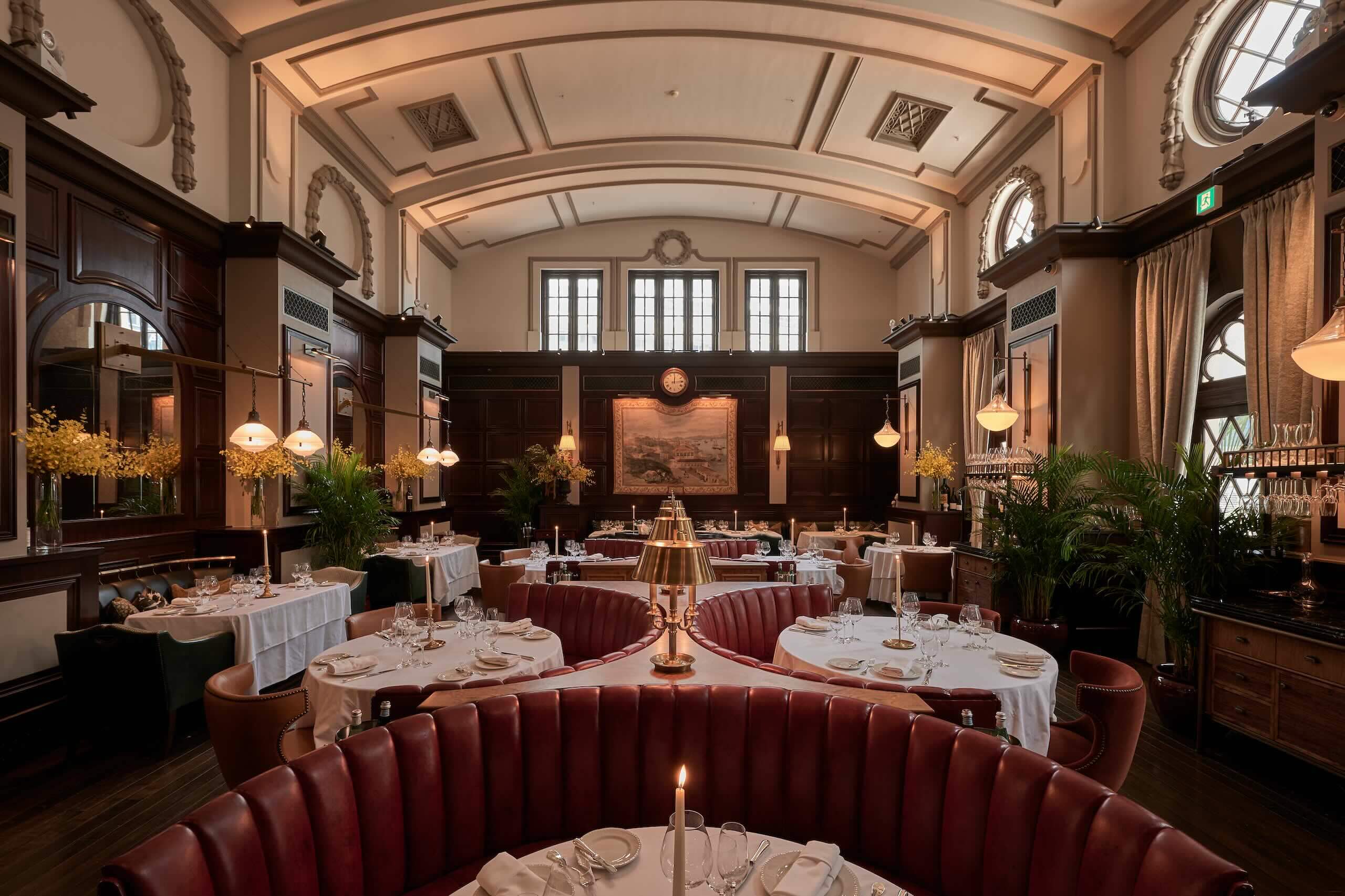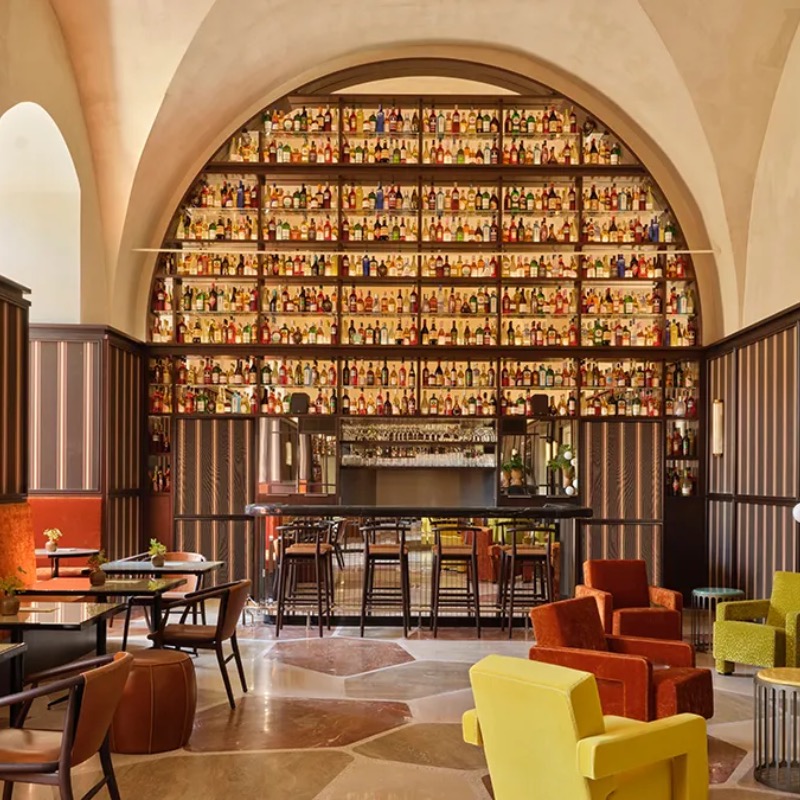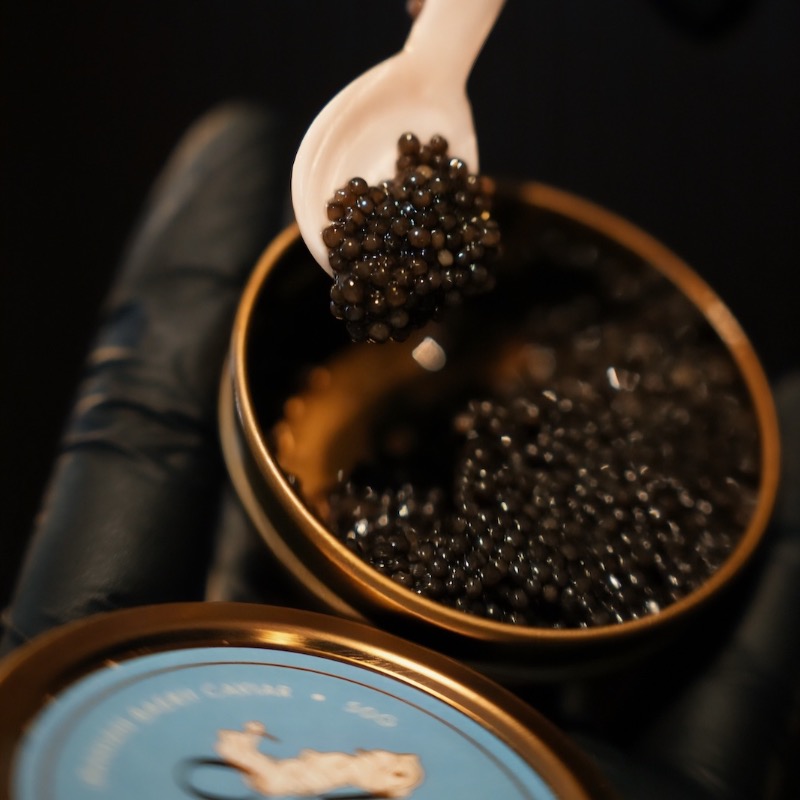More than a year after Black Sheep Restaurants took on the colossal task of breathing new life into the Central Magistracy—a former judicial house filled with over a century’s worth of rich history—by revitalising it into a premier dining destination after four decades of dormancy, there’s a new chef at the helm to steer the ship.
Inspired by the unmistakable character and heritage of Britain’s oldest gastronomic establishments, Magistracy Dining Room preserves the charm and savoir-faire of such institutions through its newly appointed executive chef, Alyn Williams. Now, his mission is to continue the legacy of London’s age-old dining houses, starting with an overhaul of the à la carte menu to emphasise a stronger focus on important cornerstones of British cuisine, with more pronounced British influence.
“Provenance and seasonality are key factors, given that the UK experiences four distinct seasons, each offering a unique range of ingredients,” Williams tells Robb Report Hong Kong about his approach. “Over time, these elements will become more evident on our menus [and] the menus will evolve around our discoveries of British regional dishes and seasonal changes” in a bid to reconcile the restaurant’s culinary essence with the history of its storied location.

Williams, an East London native, comes with an impressive background of his own, having trained under and worked with fellow Brits Marcus Wareing and Gordon Ramsay, to name a few. Wareing in particular—known for his eponymous Michelin-starred restaurant Marcus, since shuttered, and for his role as a judge on the BBC series MasterChef: The Professionals since 2014—had a profound impact on Williams’s approach to professional cooking after eight years of service in his kitchen brigade.
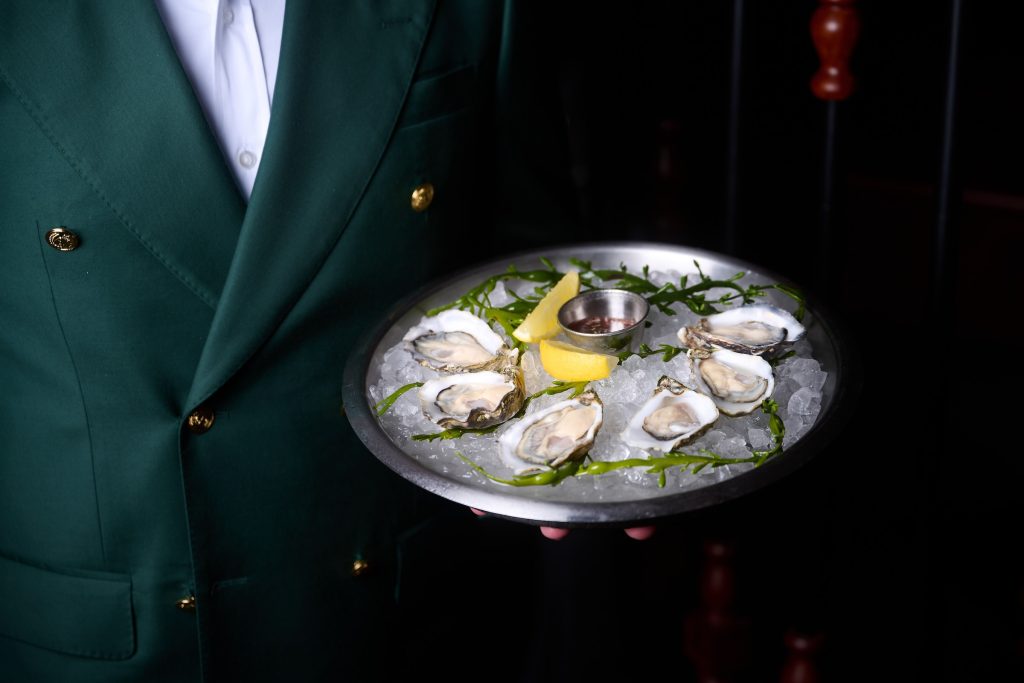
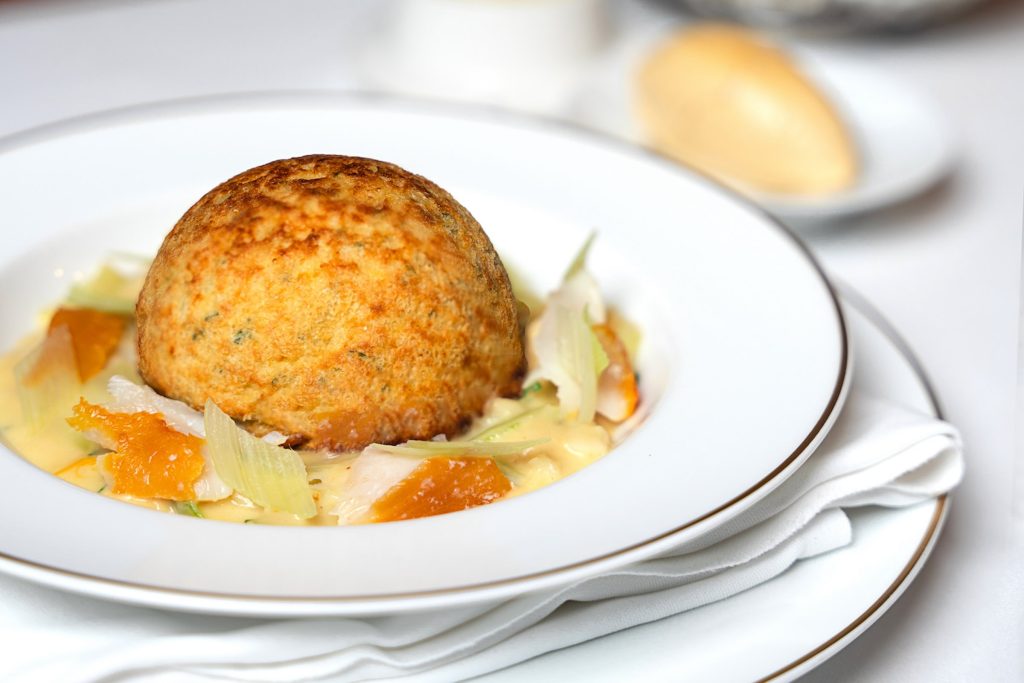

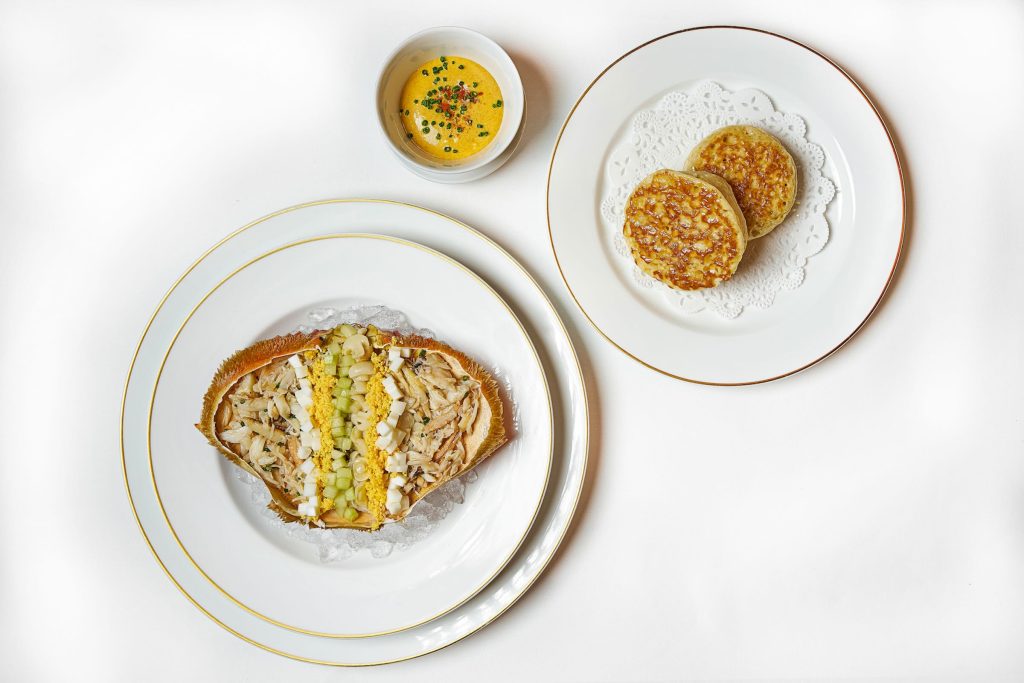

In essence, the codeword for the revamp is “timelessness,” and key elements that characterise British cuisine are evident in the heritage tomato tart elevated with exquisite Arbequina olive oil, crème fraîche, and herbs; dressed Dungeness crab served with toasted crumpets; the iconic soufflé Arnold Bennett, an indulgent creation of smoked haddock, Lincolnshire Poacher cheese, and leek; and the slow-steamed Atlantic cod, served with crispy caviar and chive beurre blanc. Magistracy Dining Room’s house-made sourdough, with Beillevaire and marmite butters, is also a phenomenal item to whet the appetite.
A centrepiece of the dining experience is the unmissable slow-cooked roast beef, carved table-side and served with horseradish cream and beef jus, not to mention the quality chophouse confit potatoes, a showstopping feat of mouthwatering flavour and perfect texture. For finishers, the sticky toffee pudding is a must, as is the salted caramel tart. It’s a compact menu, to be sure, but it confidently exemplifies the evolution of the dining concept under Williams’s direction.
“At the moment, quite a lot of our produce is imported,” Williams admits. “I want to be able to get more seasonal produce from the UK, but it is very important to me to also use what is around us.” One of the dishes on the menu that paves the way towards incorporating locality is the poached and roasted three-yellow chicken, a succulent chicken crown served with a shortcrust pastry pie filled with braised chicken leg and vegetables, the product of a partnership with a local producer. Williams also works with a host of vegetable farmers to source his ingredients, hoping to increase his supply of produce grown in the city.
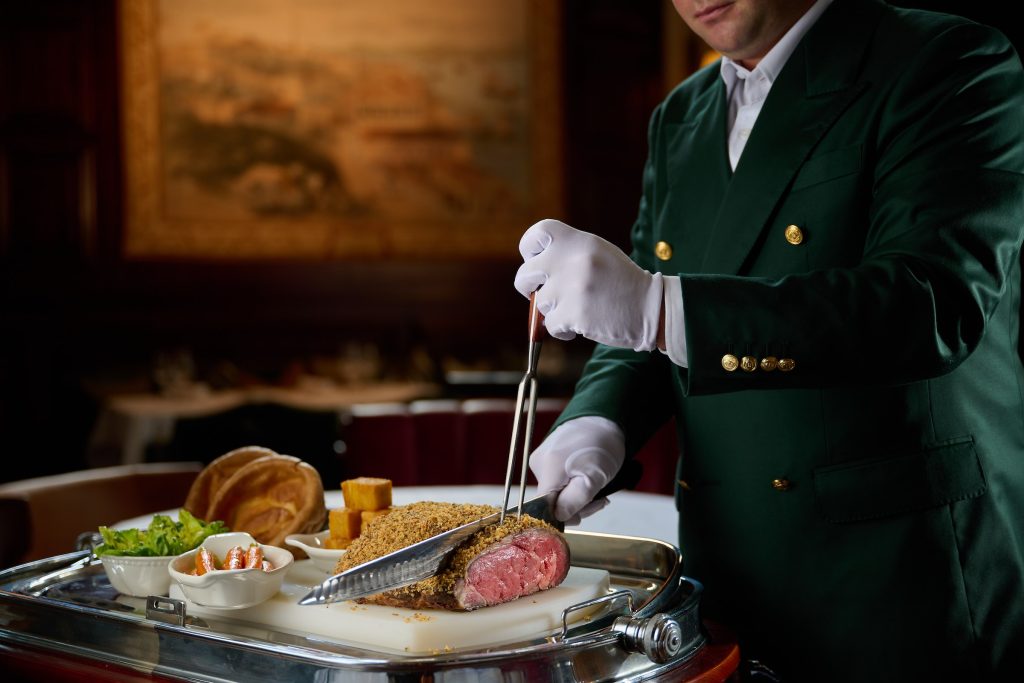
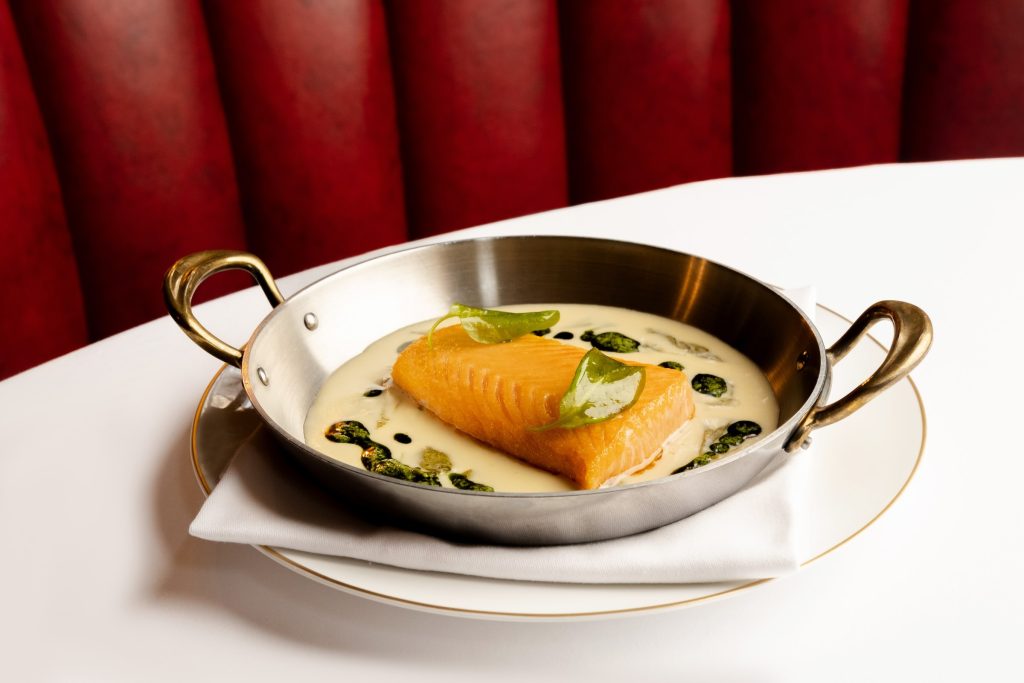

Some of Williams’s newly introduced dishes bear histories that can be traced back to tell interesting stories about food, both from urban and personal perspectives. His beef tea broth is a “delicate yet flavourful beef consommé with spring vegetables and poached [Gillardeau] oysters in roasted beef fat;” its origins go all the way back to the 1800s when the Thames Estuary was home to an abundance of oysters, used to enhance beef-based pies and puddings. Williams’s version reimagines the traditional recipe and “brings refinement to the concept.” Another dish of note is his chef’s dad’s allotment spring vegetables salad, tinged with familial history: “My father was an excellent gardener, and we had a large garden at home along with two community allotments. He grew most of the vegetables that we consumed at home. One of his signature dishes was a salad prepared on Sundays to accompany the ever-present roast dinner. It consisted of shredded root vegetables, cabbage, herbs, and a dressing, along with plenty of apples, raisins, and toasted seeds.” In tribute to his father, “[who] was a big influence growing up,” Williams enhances the colourful dish now served at Magistracy Dining Room with puffed grains and a light mint and honey dressing.
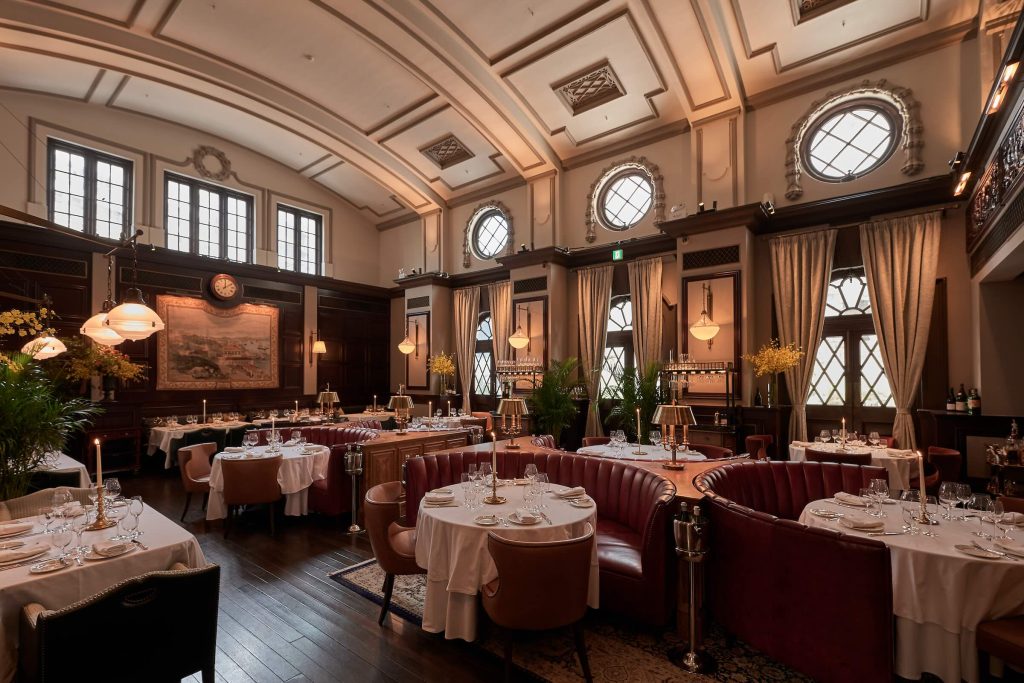
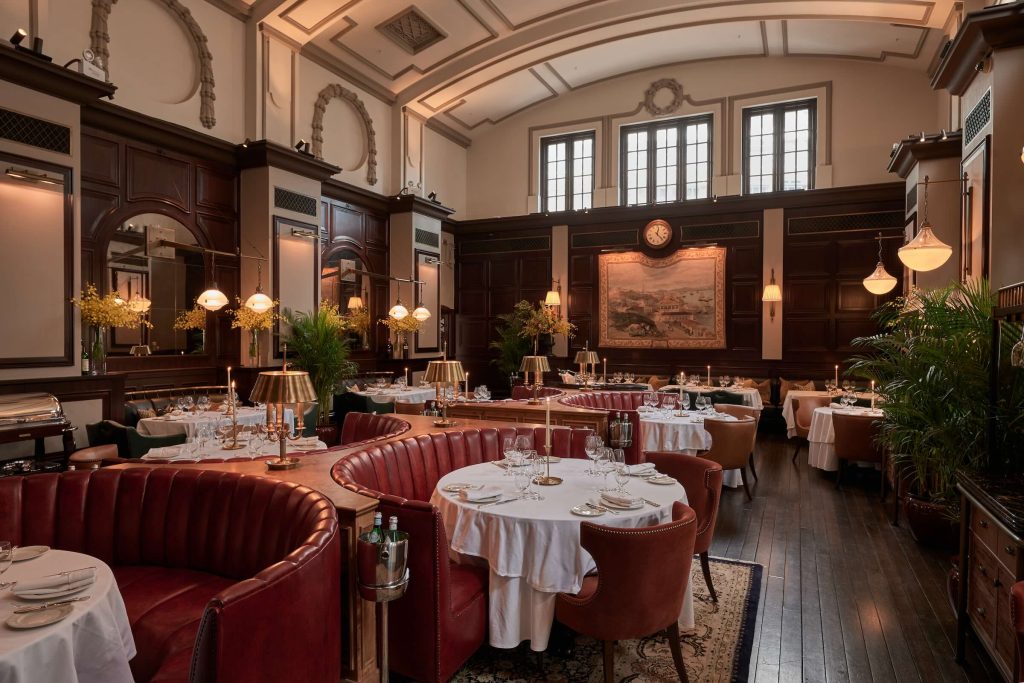
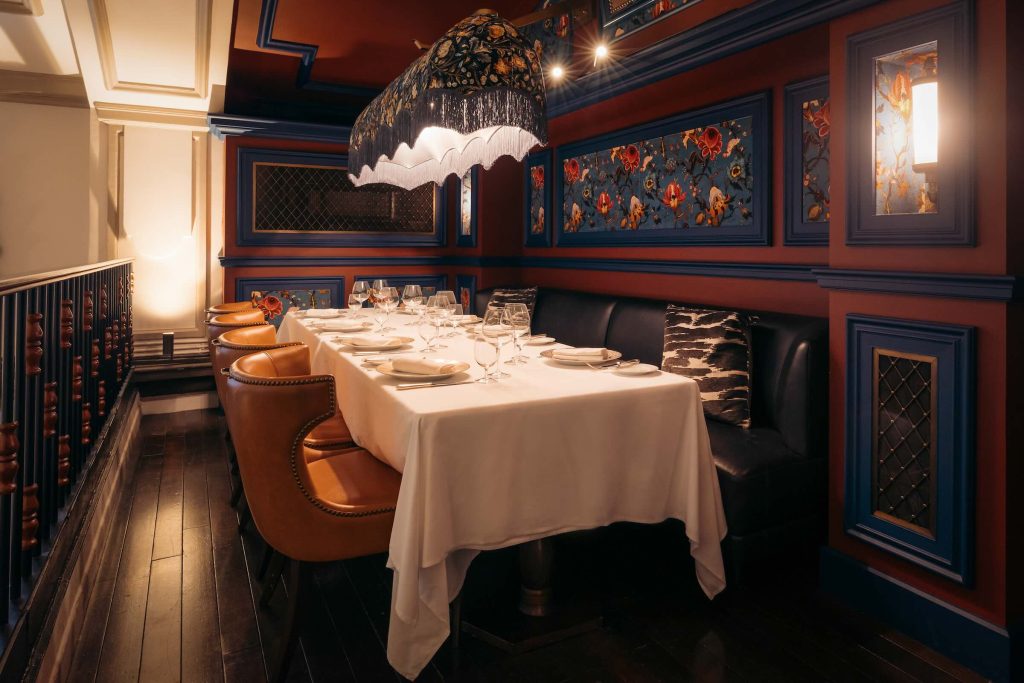
Williams and his dishes are not the only new addition to Magistracy Dining Room. Off the main dining area, what was once a side room reserved for judicial powers to contemplate their cases has been transformed into an exquisitely renovated private space with an adjoining terrace. Dubbed the Ruby Room, it is sumptuously dressed in deep reds, soft velvet, and warm lights to create a luxurious, intimate retreat for up to six guests. Meanwhile, the semi-private Mezzanine—previously a public gallery, connected by an eye-catching spiral staircase—overlooks the main dining room, a grand, regal venue of vaulted ceilings and majestic banquettes that exudes the keen design sensibilities brought by Joyce Wang and her same-named studio.
In homage to the location’s former purpose as a historical supreme court, Wang imbues the interiors with visual influences lifted from the well-documented catalogue of 19th-century English architectural elegance, distinguished by carved timber panels, marble slabs, oxblood leather, custom tapestries, and moody accent lamps to set the stately atmosphere. Of course, the details complete the full picture: custom-made Bernardaud porcelain dinnerware, Christofle tableware, handcrafted Sheffield Cutlery steak knives, and charming Ercuis silver-plated trolleys are just a few of the artistic touches contributing to the experience.
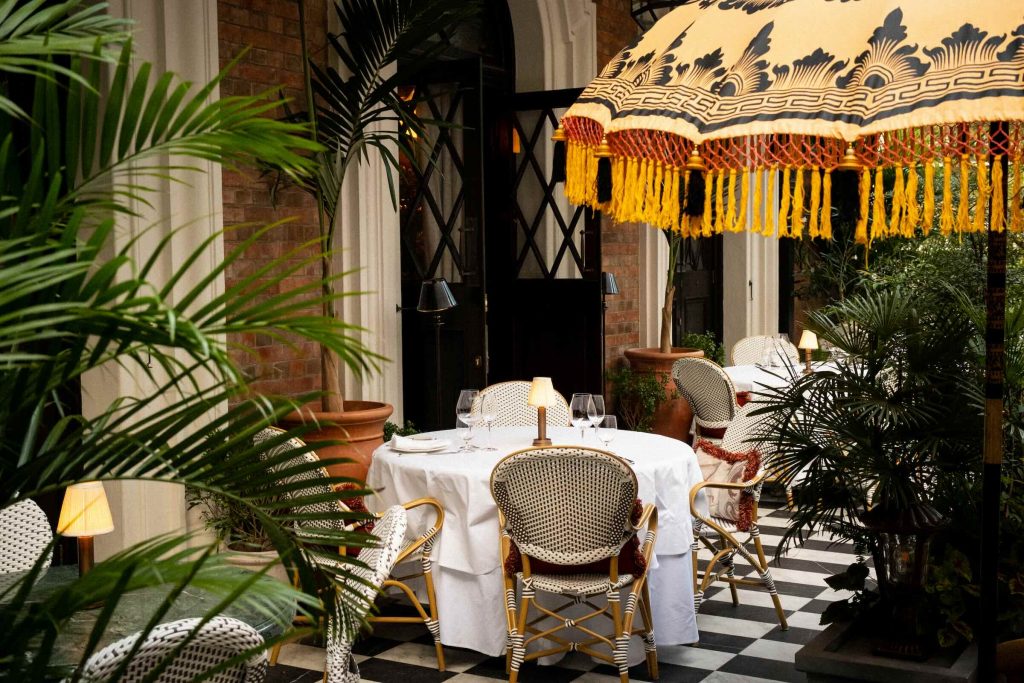

Outside, in the Botanical Garden, arched glass doors give way to over dozens of varieties of lush shrubs, hydrangeas, ivies, and ferns, creating a vibrant oasis in the image of classic British heritage patios. Equipped with a robust gin selection and small bites, the Botanical Garden is the “perfect [place] to put you in the mood for British dining” before moving on into Magistracy Dining Room for an indulgent feast, where Williams hopes to delight diners through impactful storytelling and indelible flavours, as well as transport them beyond just food by fostering “a closer connection” with each individual guest while “[continuing] the great work that went before me in keeping the Magistracy moving forwards,” the chef says.
Williams’s first touch at leading Magistracy Dining Room’s culinary identity back to its British roots is not only a clear indication of his steadfast dedication to celebrating and elevating food from Blighty, it is also an important step taken towards unravelling an intricate tapestry of dining traditions. Perhaps gaining a better understanding of this oft-misunderstood cuisine could be as simple as tucking into one of his lovingly prepared allotment vegetables salads.
G/F, Central Magistracy, Tai Kwun, 1 Arbuthnot Road, Central
Tel: (+852) 2252 3177
All images courtesy of Magistracy Dining Room.





